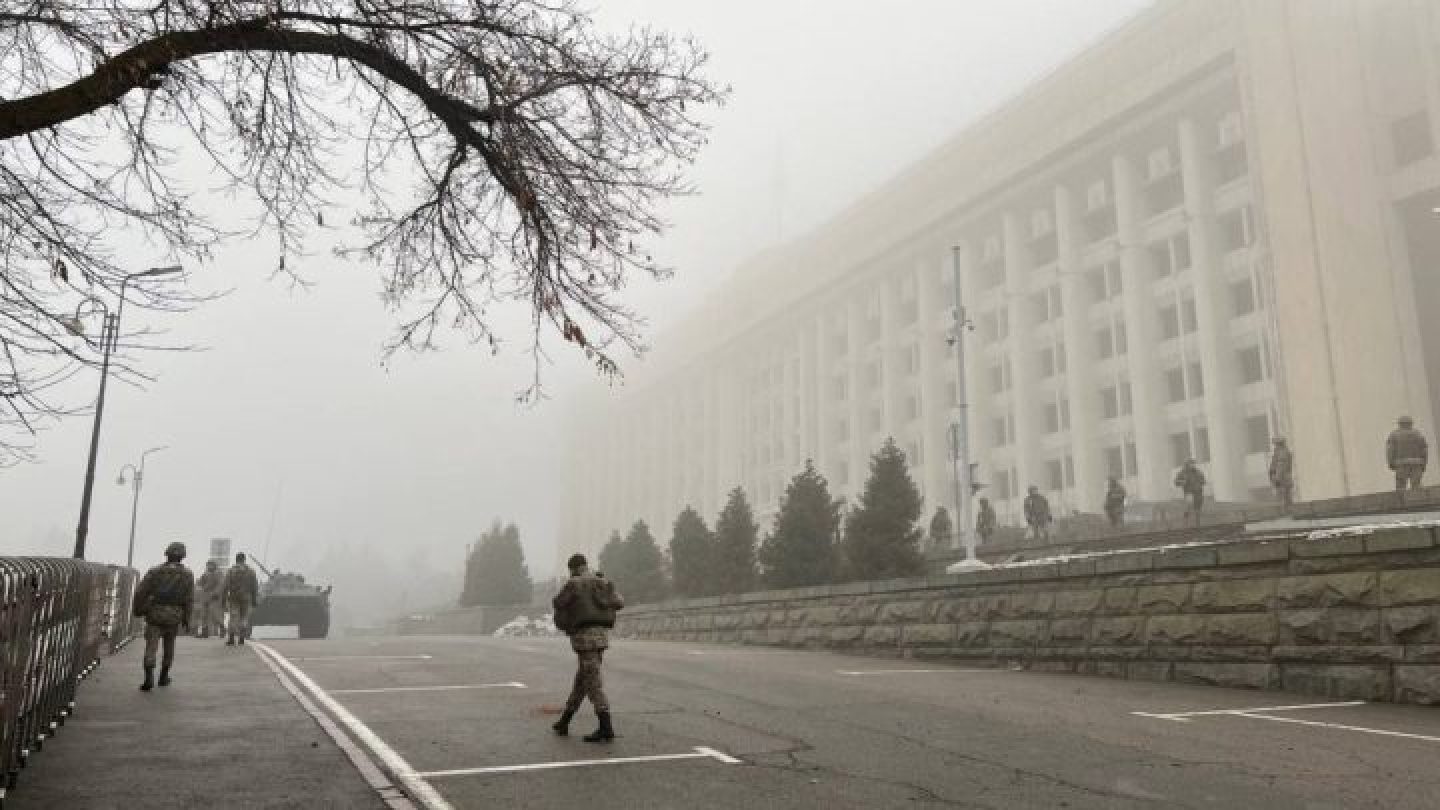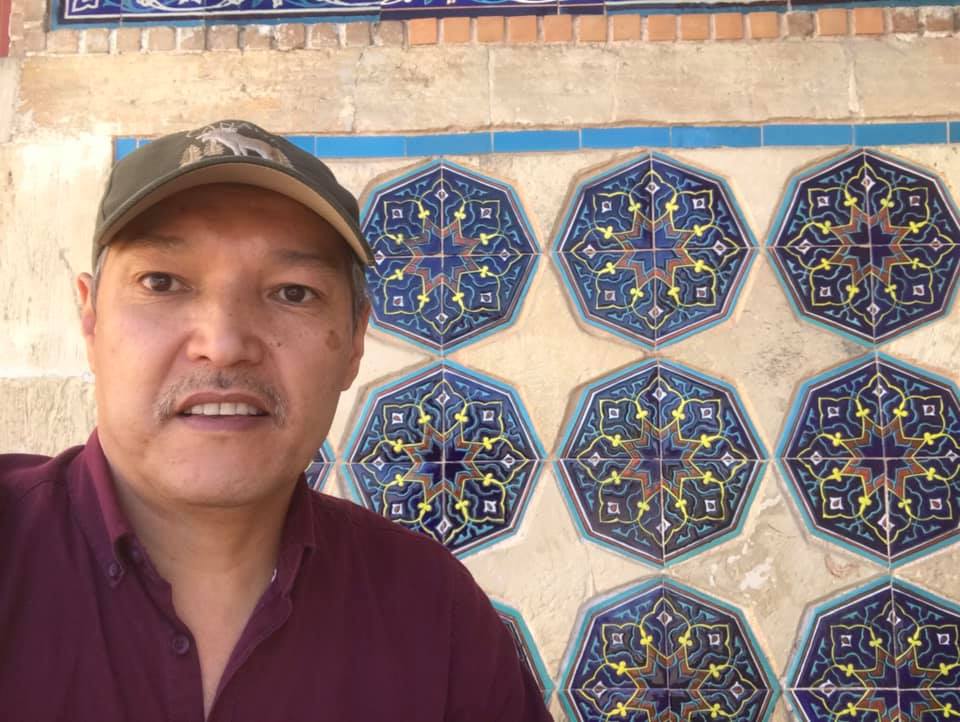If The State Does Not Share Power and Resources, The January Events Will Repeat – Expert
 Orda.kz
Orda.kz
The issue of the development of local self-government became topical at the very dawn of Kazakhstan's independence. This topic has repeatedly flared up, then faded away again, but it has never found a clear or effective form.
It has, however, been recently revisited. The presentation of the Concept of Local Government Development developed by the Ministry of National Economy has served as the occasion. There is a hypothesis that the tragic events of January 2022 in Kazakhstan returned this topic to the forefront.
A supporter of this point of view is the director of the Center for Political Studies of the Institute of Philosophy, Political Science and Religious Studies of the Committee of Science of the Ministry of Science and Higher Education of the Republic of Kazakhstan, Aidar Amrebayev. He shared with Orda his reflections on the prospects of local self-governance in New Kazakhstan.

According to him, the problem of the widespread introduction of local self-governance (LSG) into the practice of Kazakhstan is not a side issue but is closely related to the choice of a model for the republic's further development.
Indeed, Kazakhstan has traditionally followed the course of a state-centered management model, the costs of which were becoming more and more extensive. The economy is dominated by state and quasi-state monopoly structures that limit real competition on the ground in the interests of oligopolies and restrain broad entrepreneurial initiatives.
A similar situation is developing in the municipal sphere, where local government bodies are unable to solve people's problems.
It has been proposed to transfer this authority into the hands of local self-governance bodies (LSG). For example, housing self-government through cooperatives of apartment owners and property owner communities, or kenes in rural areas. This model nevertheless assumes only a partial transfer of powers to public self-government institutions under strict state control. And in fact, there is no separation of functions of state and municipal, and local government.

According to Aidar Amrebayev, management functions are often duplicated or elected structures (maslikhats) are engaged in legitimizing an akim's decisions. The influence of public councils depends on individual citizens' authority and involvement in their activities.
"I think there cannot be a single universal model of LSG for the whole country. It should provide a wide range of different forms of self-organization of citizens, taking into account the peculiarities of large and small cities, villages, and individual regions of the country, in order to develop an adequate model of public self-government, giving it the necessary amount of authority, tools and budget to focus on solving local tasks specific to a particular territory. At the same time, the main mission of the LSG should be to improve the quality of life of citizens of specific territories, which ultimately form a policy across the entire state,"
Amrebayev says.
The state-paternalistic vertical of power that has been formed over the years since Kazakhstan's independence is more focused on ensuring the stability of power, rather than solving urgent social problems.
From this, the separation of power from the needs of the people arises. People are worried about "earthly problems", which state officials do not get around to. They are busy fulfilling the tasks of higher authorities, directives, plans, and national programs issued from above.
"Obviously, it was this situation of the "gap" that caused the idea of a "hearing state", which, according to the developers, should focus on responding to topical social problems. It seems that the January public protests of 2022 demonstrated discontent, including with the system of public administration that ignores the interests of ordinary people. People were dissatisfied with the fact that the state, represented by officials, lives its own life, absolutely not taking into account the life problems of ordinary citizens,"
the interlocutor continued.
Amrebayev says that when discussions concern a Fair Kazakhstan, they obviously mean a state that is sensitive to broad public demands and capable of promptly solving everyday social problems.
In this regard, the gradual introduction of the electability of akims of different levels or the introduction of other forms of public self-governance (kenes and others), the endowment of maslikhats with the appropriate powers and tools to influence the decision-making process can become effective steps towards a Fair Kazakhstan, Aidar Amrebayev believes.
Elections should undoubtedly be fair and transparent, whereas the practice of "appointing the right people through elections" - stopped. The self-government structures, according to the expert, should be protected by law and have sufficient administrative and budgetary resources to resolve problems on the ground:
"I think that the transformation of the LSG into a working tool is necessary not only for ordinary citizens. This is a condition for the capacity of the Kazakhstani management system, the doubt about the adequacy of which appeared among the population in January 2022. And now, if government agencies continue to imitate the interaction of government and society, create "fake" public self-government bodies that do not meet the interests of the broad strata of society, the practice of deprofessionalization in the managerial elite will continue, while the process of making decisions important to society will remain behind the scenes and private, fenced off from the people by an insurmountable wall of bureaucracy and deputies appointed from above, then events like those in January may well happen again."
Amrebayev
Both the state and society are interested more than ever in joint and mutual trust and responsibility for the country. People want well-being and security, while the state is interested in maintaining the system's stability and manageability. These interests do not contradict each other. It is necessary to find an optimal dialogue, concluded Aidar Amrebayev.
Original Author: Danil Utyupin
DISCLAIMER: This is a translated piece, the text has been modified, the content is the same. Please refer to the original article in Russian for accuracy. The original article was published on 17/06/2023
Latest news
- Oil Smuggling Trial Begins in Aqtau Over Seized Tanker
- Armenian Foreign Ministry Open to Outsourcing Transport Corridor Oversight
- A Second Kazakhstan-Born Individual Convicted of Treason in Russia This Month
- National Fund Council: Toqayev Receives Tie-Breaking Vote Power
- Kazakhstani Caught With Fake Passport in Bulgaria Fears Extradition
- Rubio and Lavrov Hold Talks at ASEAN Summit Amid Escalation in Ukraine
- Asset Recovery: Price on De Beers Earrings Cut by 23 Million Tenge
- Pashinyan and Aliyev Discuss Normalization Efforts in Abu Dhabi
- What Will Be Considered Stalking? The Ministry of Justice Explains
- Kazakhstan Prepared to Build Karachaganak Gas Plant With Alternative Contractor if Needed
- Former Russian Orthodox Priest Launches Petition for Constantinople Church Presence in Kazakhstan
- Asset Recovery and Management Company Launches New Auction for Land in Nazarbayev’s Hometown
- Olzhas Bektenov Discusses Digital Innovation and Travel Safety with Yandex Qazaqstan
- Man Detained over Attempted Arson at House of Ministries Entrance
- Producer Says Zemfira Concert Canceled Due to Poor Planning
- Kazakhstan's Energy Minister Comments on Russia–China Gas Pipeline via Kazakhstan
- UN Working Group Says Gulnara Karimova Was Arbitrarily Detained, Uzbekistan Responds
- Perizat Kairat Claims Abuse in Detention
- U.S. Senate Considers Julie Stufft for Ambassador to Kazakhstan
- Leviathan vs. Orda: Gulnara Bazhkenova Speaks Out on Efforts to Seize Her Media and Threats to Her Life

